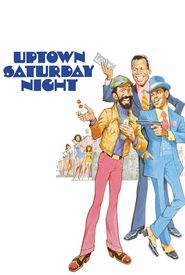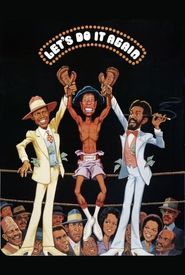Born on a sunny summer day, July 11, 1945, in the vibrant city of Newark, located in the heart of the Garden State, Richard Wesley emerged into this world, marking the beginning of a life that would be filled with purpose, passion, and a lasting impact.
Richard's formative years were profoundly impacted by the presence of his parents, George Wesley, a diligent and industrious laborer, and Gertrude Thomas Wesley, a dedicated and nurturing housewife, who collectively exerted a substantial influence on his early life and subsequent growth.
At the esteemed Howard University, located in the nation's capital, Washington, DC, he embarked on an academic journey that would ultimately shape his future in the world of Playwriting and Dramatic Literature.
As he delved into the intricacies of the art form, he was fortunate enough to be mentored by two highly respected individuals who played a pivotal role in honing his craft. The Chair of the Drama Department, the illustrious Owen Dodson, offered guidance and wisdom that would prove invaluable in his development as a playwright.
Additionally, his playwriting teacher, the accomplished Ted Shine, provided valuable insights and expertise that further expanded his understanding of the craft. Under the tutelage of these two esteemed mentors, he was able to refine his skills and cultivate a deep appreciation for the art of playwriting.
As the decade of the 1960s slowly unfolded, a profoundly significant and far-reaching social phenomenon was steadily gaining momentum, captivating the imagination and energies of young people across the globe, a widespread and all-encompassing movement that would ultimately reshape the very fabric of society.
Meanwhile, on a particular university campus, a junior student, Stokely Carmichael, a name that would soon become an iconic symbol of the struggle for racial equality, was going about his daily routine, seemingly unaware of the seismic impact he would soon have on the world, his life about to take a dramatic turn that would forever alter the trajectory of his existence.
Stokely Carmichael's life was about to take a dramatic turn, one that would propel him to the forefront of the civil rights movement, and cement his place as a leading figure in the fight for racial equality.
As the tide of social change began to swell, a pivotal figure of American authority sat at the helm of the nation, mere miles from the institution of higher learning, where young minds were being shaped and molded. John F. Kennedy, the 35th President of the United States, was diligently grappling with the intricate web of international relations and domestic politics, unaware that his tenure would soon be buffeted by the tumultuous winds of the civil rights movement, a revolutionary force that would reshape the very fabric of American society.
As the intricate tapestry of time began to unfold, the circumstances were ripe for a climactic clash between the proponents of transformative social progress and the stalwart bastions of authority, long entrenched in their dominant positions of power. The dramatic backdrop was now set, the principal actors were poised to take their respective roles, and the world would soon be treated to a watershed moment in the ongoing quest for racial harmony and equity.
Wesley's collegiate tenure was characterized by the presence of several esteemed individuals who would go on to attain remarkable achievements in their respective domains. Notably, his classmates in the prestigious College of Fine Arts included the multifaceted Hattie Winston, a gifted actress who would subsequently make a lasting impression on the world of entertainment, gracing the stages of Broadway and captivating audiences in the critically acclaimed TV series Becker, alongside the illustrious Ted Danson.
Wesley had the extraordinary privilege of embarking on his academic adventure alongside the renowned Donny Hathaway, a gifted composer and R&B luminary who made an enduring and profound impact on the music industry, leaving behind a lasting legacy that continues to inspire and influence generations of musicians and music enthusiasts alike.
Jessye Norman, a luminary in the realm of opera and concert performances, has captivated audiences globally with her extraordinary vocal prowess, earning her a prestigious place within the esteemed College of Fine Arts.
As Wesley embarked on his senior year, he found himself in the esteemed company of a young and ambitious freshman, whose name would soon become synonymous with excellence in the entertainment industry. This remarkable individual, none other than the multi-talented Phylicia Rashad, would go on to achieve unparalleled success, starring in not one, but two iconic Bill Cosby TV series, and making history by becoming the first black woman to receive the coveted Tony Award for Best Actress, a milestone that would cement her status as a trailblazer in the world of American theatre.
Wesley's extraordinary promise began to unfold at a remarkably young age, showcasing his remarkable aptitude and precocity in the realm of creative writing. His impressive achievement as a sophomore, a mere nineteen years old, was a testament to his exceptional talent and dedication, earning him an Honorable Mention in the esteemed Samuel French publishing company's annual National Collegiate Playwriting Competition.
Wesley's academic endeavors finally came to a close, and he set his sights on the vibrant metropolis of New York City, a hub of activity that would significantly alter the course of his life. It was in this bustling city that he had the chance to reconnect with the illustrious actors Ossie Davis and Ruby Dee, individuals he had previously had the pleasure of encountering during his undergraduate years at Howard University. These esteemed individuals, who had already left an indelible mark on the world of entertainment, took notice of Wesley's unwavering passion and dedication to his craft, and in doing so, they offered him invaluable guidance and direction. This guidance ultimately led Wesley to the renowned New Lafayette Theatre in Harlem, an institution that would serve as the catalyst for his future endeavors in the world of acting.



























